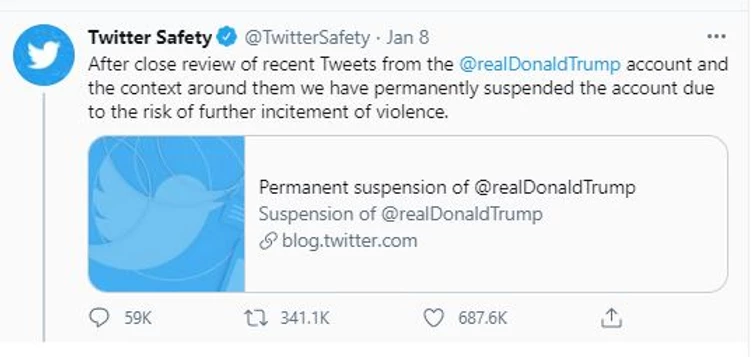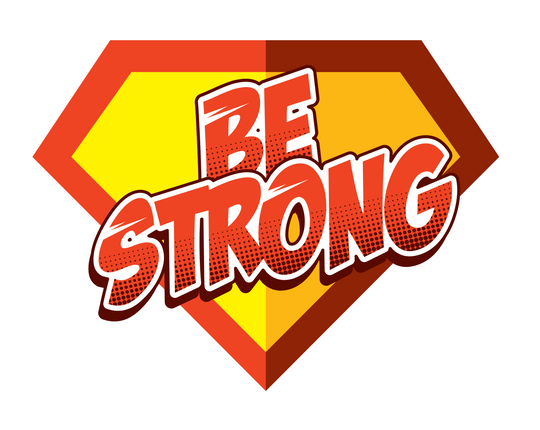*Trigger warning*
Hello Dear Readers. Like many of you (especially those of you connected to the United States in some form), we’ve been glued to the news – grasping at any and every bit of information we can take in about what happened in Washington D.C. on 6th January. Investigations and arrests are ongoing and will continue likely for years. In addition this has resulted in the second impeachment trial of the former president of the United States. Some of the most distressing information may be that there appears to have been insider help (from law enforcement, on up to the Department of Defense and the Senate) but also that the relevant authorities were warned in good time, and decided against offering preemptive support.
What does this have to do with online safety?
First and foremost, we know for a fact that much of the insurrection was cultivated, groomed and planned online. We also know that certain individuals in positions of power, such as the Mayor of DC, were begging for assistance and warning others of the potential dangers that would occur. We also now know that much of this was ignored and that additional support was rejected as ‘they didn’t like the optics’ of an overly fortified U.S. capitol during the ‘protest’.
Perhaps much of what happened on 6th January could have been avoided had those in charge listened and taken action when they were warned, rather than waiting until something had happened. But we’ll never know for sure.

As experts working in Online Safety, Trust and Responsibility for over 15 years, what we can tell you is that we weren’t entirely shocked at the initial reaction and subsequent rejection of additional support because this isn’t new.
Many of us have asked organisations, over the years, “please take this seriously” only to end up with a discussion outlining “this is where we could have done better”.
It is said that everyone should spend a year doing customer service and/or public service in order to better understand how to treat one another. In this day and age moderation needs to be included in this sentiment. Doing the work of a moderator means one more step towards understanding how online communication is used from all perspectives – good, bad, and the downright ugly.
Right now, there is a disparity between those that are aware that the gap between virtual reality and the real world has closed, and those that are still very much unaware, for whatever the reason. This needs to change. What happened in the U.S. Capitol will be studied for years to come. It will change laws, and will put new restrictions on social and digital interactions. In addition, we believe both public and private businesses will be forced to think strategically about their own online guidelines and brand reputation strategies.
So where to begin?
What can you do starting right now, to ensure similar threats of real world danger don’t happen to your organisation, or to your teams?
- Keep the conversation open between your online safety team and those in positions of power who have to make the tough decisions.
- Ongoing training and discussion for anyone involved in your social media spaces – from the CEO to the newest member of your team. Continued training will be vital to understanding not only how healthy your community is, but will assist you in making quicker decisions if and when you need to shut something down
- Be clear with your policies and guidelines, as well as your escalation processes. Make them easy to find, and ensure they inform your community of the possible ramifications should someone attempt to break the rules. Know your aims, the tipping points, what needs to be deleted and when further action is needed. Then…

Follow your own policies – and take appropriate action regardless of the optics.
- Listen, ask questions, and take necessary steps to keep you and your organisation safe. This may not always be the most popular option, and you may need to make some tough decisions; however, we ask you to consider the alternative.
- Consider building a relationship with authorities – depending on your business model, you may want to consider reaching out to your local and/or federal authorities and start building a relationship. Help them to understand what you do, and what you’re facing as an online business and how you can help each other. If your business is children, consider reaching out to organisations such as CEOP or NSPCC (or NCMEC in the United States).
The internet is growing up fast. We have the tools It’s time we take the responsibility of a safe and respectful digital community seriously.
If you believe you’ve been affected by the recent events, visit Mind in the U.K. or the The National Suicide Prevention Hotline in the U.S. for assistance and support.



 February 15, 2021
February 15, 2021  Share This Post
Share This Post